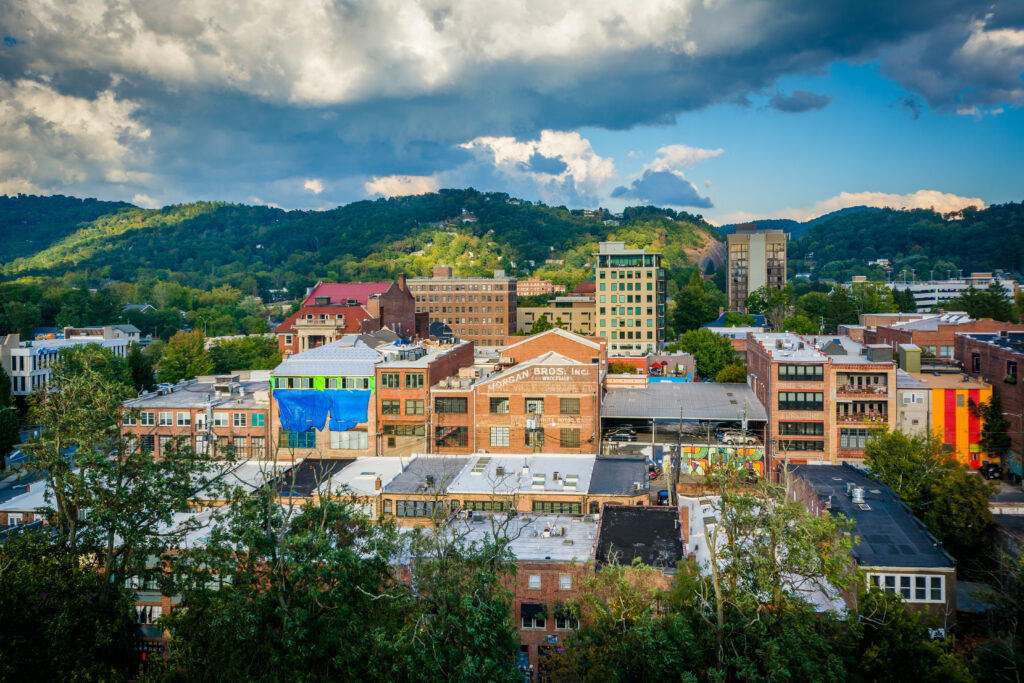 Jonbilous, Adobe Stock Images
Jonbilous, Adobe Stock Images In 2021, the UNC Board of Governors voted to designate roughly 200 acres near UNC Asheville a “millennial campus.” The designation gives UNCA more options to develop the land, permitting, for example, public-private partnerships and unfair competition with private businesses. Earlier this year, UNCA began the process of developing at least some of its new millennial campus, but not everyone is happy.
Community members are unsure how developing urban forests aligns with teaching and learning. Many Asheville residents were surprised, for example, when a land-assessment process began in an urban forest adjacent to campus. The plan was controversial not only because of its ecological ramifications but because members of the university community are unsure how such developments align with teaching and learning.
UNCA alumna Elizabeth Pritchett told the Asheville Citizen-Times, “I don’t know how UNCA got so far off track that it thinks that regional economic development is its primary mission, and not education.”
Millennial campuses and other commercial property-management represent serious mission creep at universities. Now, some residents are organizing. Friends of the Woods describes itself as “a group of concerned citizens, students, neighbors, and more,” including at least one local neighborhood association. The group also has the support of several local retailers. A statement by Friends of the Woods explains, “UNC Asheville’s 45-acre urban forest has been a cherished community resource and wildlife habitat for decades. It’s now under threat of development, despite its status as one of the last remaining urban forests in Asheville.”
One of the group’s chief complaints concerns the lack of campus and citizen input. Beka Hedly, a Friends of the Woods organizer, told the Martin Center via email that the decision regarding the UNCA millennial campus was made “seemingly without any input by any stakeholders beyond the Board of Trustees and the Board of Governors.” She added, “The faculty and students of the university were just as shocked as the rest of us by this announcement.”
A petition by Friends of the Woods calls for:
• An immediate pause on all development activities in the forest.
• A transparent process involving students, staff, and community members to evaluate its future use.
• A commitment to explore alternatives that protect the forest while addressing UNCA’s needs.
As I have often argued, millennial campuses and other commercial property-management represent serious mission creep at universities. This is especially true at UNCA, which, until 2022, was devoted to undergraduate liberal arts. Prior to 2022, UNCA described itself as “the state of North Carolina’s designated public liberal arts university” and touted its liberal-arts curriculum.
The new millennial campus will further erode the school’s commitment to its mission. This is true any time a university engages in nonacademic activities to “diversify … revenue streams,” to borrow a phrase used by Chancellor Kimberly van Noort. Such activities divert the university’s attention from its core mission and toward profit-generating activities, where it competes with local businesses with the help of its tax-free nonprofit status.
The law allowing the UNC Board of Governors to create millennial campuses, North Carolina G.S. 116-198.34, specifies that the new millennial campus must “enhance the institution’s research, teaching, and service missions as well as enhance the economic development of the region served by the institution.” As the law makes clear, contributing to the university’s mission is a necessary but often ignored condition of the new campus’s approval.
This is important because, so far, it’s unclear how the new campus will align with UNCA’s mission. The UNC Asheville Revitalization Plan 2021-2028 states that UNCA will “leverage our Millennial Campus designation from the UNC System to partner with regional leaders on key public-private projects.” The Asheville Citizen-Times reports that “no decisions have been finalized” but lists “affordable workforce and student housing, educational facilities, entertainment and recreational facilities, sports facilities, research industry collaborations, and child care facilities” as options.
It is easy to understand why, in a time of enrollment uncertainty, the university is looking for revenues that are not tied to tuition. But if the campus follows this plan and enrollment subsequently declines, larger and larger percentages of university activity will be devoted to nonacademic endeavors. Because of this challenge, UNCA is uniquely vulnerable to losing its identity.
Jenna A. Robinson is president of the James G. Martin Center for Academic Renewal.
